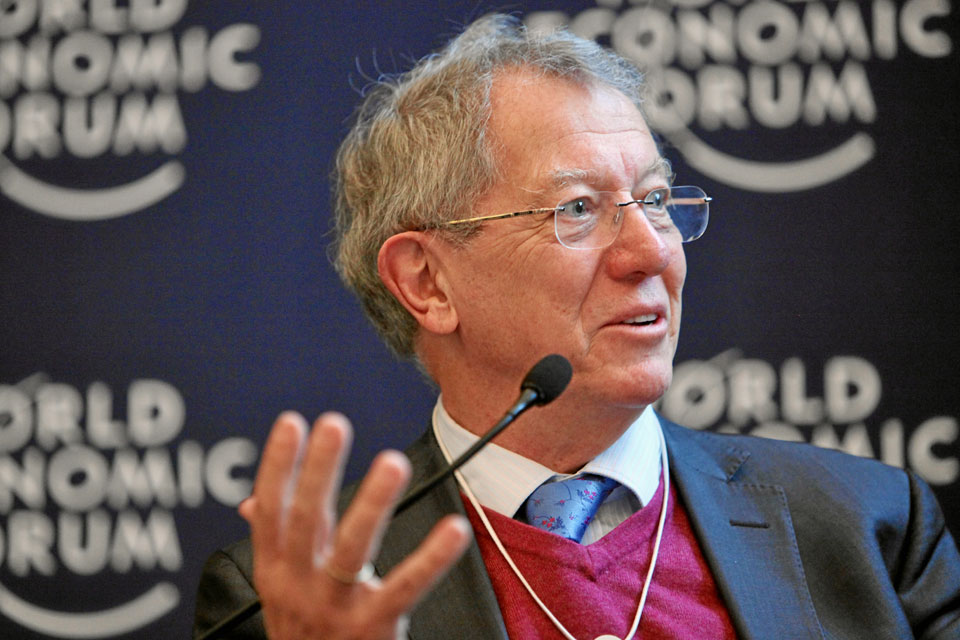'The UK aims to have smart meters in place by 2020'
Transcript of a speech by Sir David King at India Smart Grid Week inaugural in Delhi, 16 March 2016.

Ladies and gentlemen, I am delighted to be here in India again, and to be speaking alongside such distinguished guests at Smart Grid Week.
The UK and India have a strong history of partnership on energy. And this partnership is going from strength to strength.
In London in November, our two Prime Ministers put our collaboration on energy and climate change front and centre in the bilateral relationship - recognising how important secure, reliable and affordable energy is for sustainable economic growth in both our countries.
Our partnership plays to the strengths of both countries, and addresses challenges we both face:
- from a renewed joint commitment in November by both Prime Ministers to tackle climate change, just weeks ahead of the ground-breaking Paris agreement;
- to our joint programmes helping to deliver low-carbon, climate resilient, smart cities of the future;
- to our programmes that draw on the expertise in the City of London and mobilise the international finance community to understand and address barriers to investment in clean energy in India and elsewhere.
But action from governments alone will not deliver the energy transformation that is needed. Businesses, researchers, investors and civil society all need to play their part too.
Smart Grid Week
And that is why events such as this, at India Smart Grid Week, are so important – bringing together the whole community to debate, to challenge and to find solutions.
And the subject matter – smart grids – could not be more important, either.
I would not be surprised, however, if some of you in the audience have found yourself asking what a ‘smart grid’ actually is. You would not be alone.
The UK has considered this question, and I think it has a pretty good definition:
- A smart grid is intended ‘to support an efficient, timely transition to a low carbon economy to help the UK meet its carbon reduction targets, ensure energy security and wider energy goals while minimising costs to consumers’.
What is the UK doing?
This sounds good. But what are we doing about it?
It has been clear for some time that GREAT Britain’s electricity networks - built well, but built a long time ago - face a challenging future.
But it is also a future of tremendous opportunity. Over this coming decade billions of pounds will be spent on our networks. Most of this is needed to maintain the electricity system and replace ageing infrastructure.
But we need to do more than just maintain the existing system. We need to make it more flexible and more adaptable. We need investment in new, smarter technologies combined with the development of new commercial arrangements to tackle the uncertainties our network operators face and reduce overall expenditure.
In the UK, we believe that smart grids will enable new sources of energy and new forms of demand. They will help us keep the lights on at minimum cost to consumers, while creating jobs and enhancing growth.
They can support our low carbon transition and create opportunities for consumers to play an active role in the energy system alongside generators, suppliers and network companies.
And in the UK, as in India, smart grids can be the drivers of smart cities.
Many of these smart grid benefits will be realised in the 2020s and beyond. But we must not wait until then to put in place the enablers for smart grids - physical, commercial and regulatory frameworks.
While many of the benefits can be captured now, longer-term benefits will only be realised if we identify and start to overcome barriers today.
Smart meters
One of the early steps the UK government has taken is to prioritise smart meters.
The UK government aims for all homes and small businesses to have smart meters in place by 2020.
I know it is perhaps small by Indian standards… but this will be one of the biggest engineering projects in Europe, involving the installation of some 53 million gas and electricity meters, in over 30 million homes and small businesses.
Over the period to 2030, our assessment is that the smart meter programme will provide net benefits worth some £6.2 billion to the UK.
Conclusion
But for us, in the UK, there is still a long way to go, and many hurdles to jump. And in this, in realising our vision for smart grids, I believe the UK, India, and other countries have a lot to share.
And this event can play an important part in that.
I am particularly pleased that here at Smart Grid Week, the UK has a pavilion showcasing expertise from home-grown companies in the smart grids and energy space. I invite you all to come and meet these companies.
And I am looking forward to seeing the innovation and ambition that I know so many Indian businesses are showing in smart grids.
Ladies and gentlemen, I would like to thank the organisers for inviting me to come and say a few words at this prestigious event. And I am looking forward to hearing more about the plans for smart grids in India.
Thank you very much.